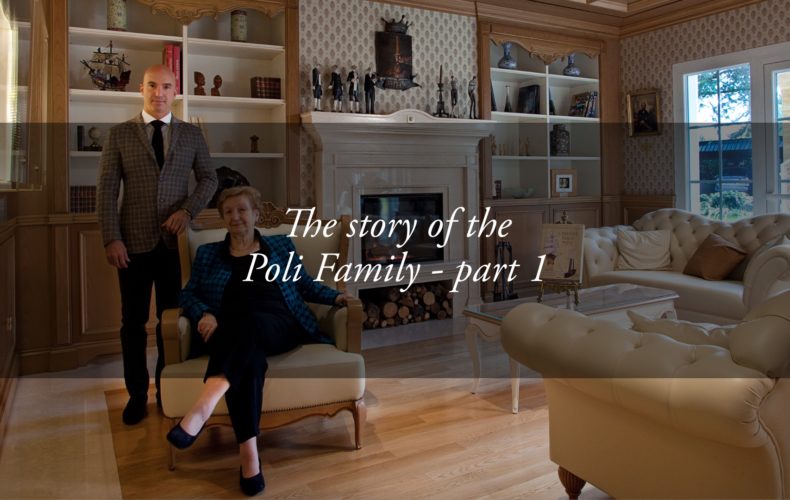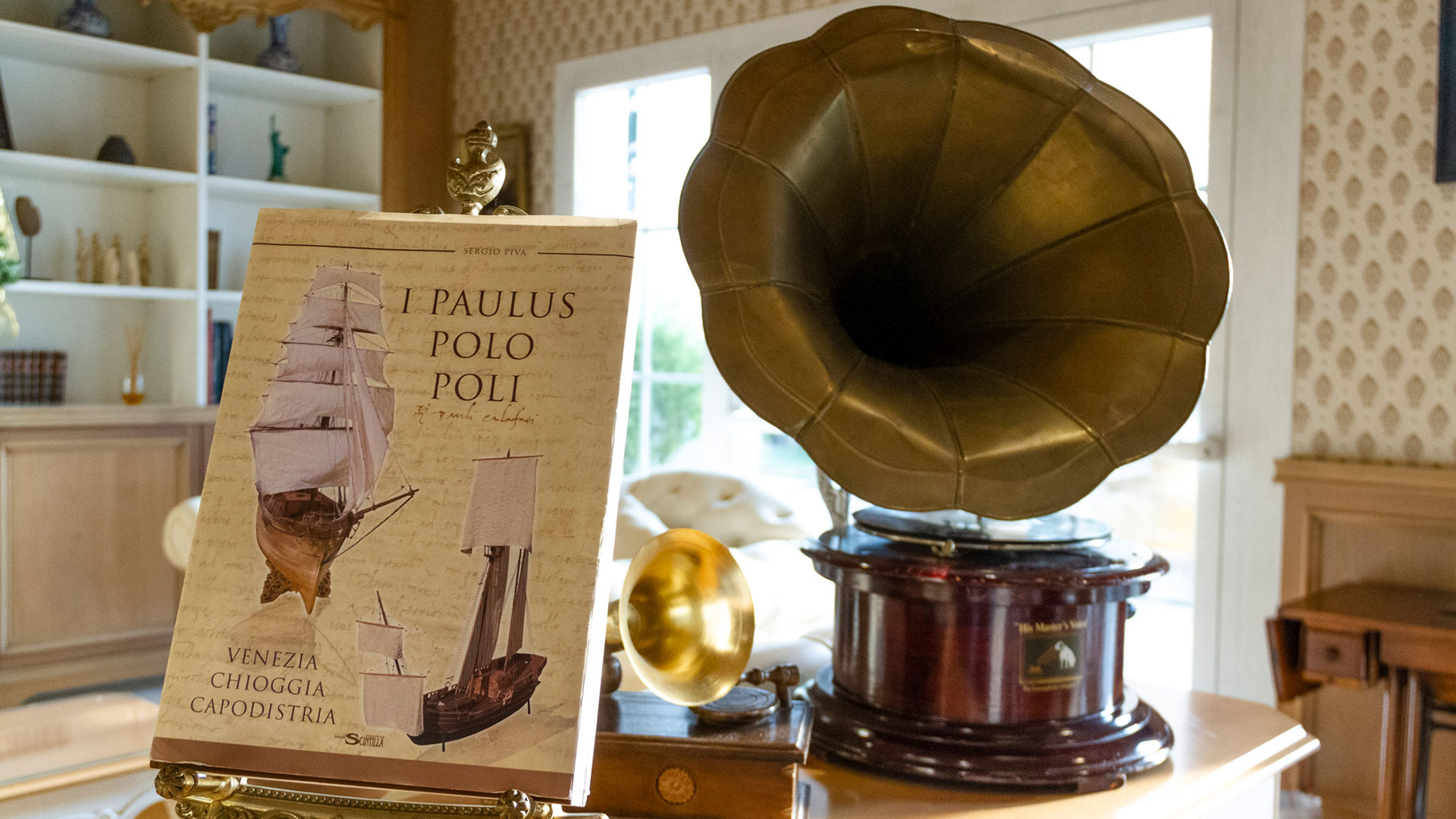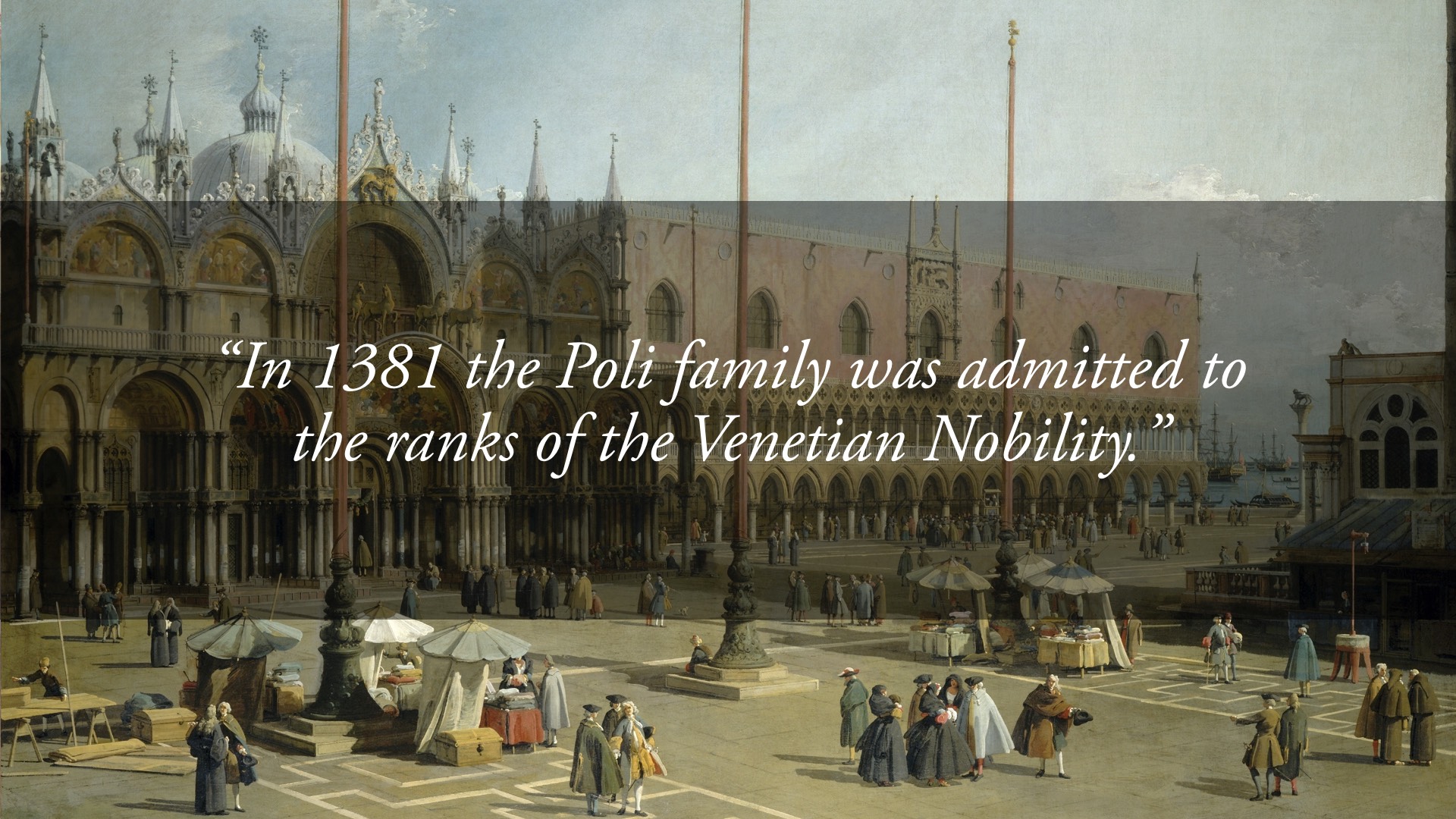
The Story of the Poli Family, owner of the Hotel Tritone in Abano – first part
The water, the sea. The Republic of Venice. Tritone.
Almost 1,000 years of documentation separate the first official mention of the Poli family from its current descendants. From the first years after the year 1000 a succession of news and historical data built up a family tree solidly connected to Dr Walter Poli, current owner and manager of the Hotel Tritone.
On this blog over the coming months we’ll talk about the history of the Poli family* from that long-distant era to today, reconstructing a historical thread which is invariably intertwined with the waters and their benefits. First in the sea and now, currently, at the Spa.
*This history was collected and documented in the book “I Paulus – Polo – Poli” by the scholar Segio Piva published in 2012 by Nuova Scintilla and available at the Hotel Boutique.
But let’s start with order.
THE FIRST NEWS ABOUT THE POLI FAMILY – 11TH CENTURY

The first evidence which places the Poli family among the notables of Chioggia is a parchment dated AD 1028 in which the names of Giovanni and Sambadino Polo appear. The document deals with the sale of a canal on the Brenta, and is signed by over 120 notables of the lagoon city (including a dozen women). In fact, the manuscript includes two members of the Poli family of which the first, Giovanni, was a priest. The second, Sambadino, will sign an act in 1040 as a representative of the city council, testifying to the prominent role of the family in the council of the city’s elders.
Over the following two centuries, news about the Poli family and its commitment to the extraction by evaporation and marketing of sea salt follow one after the other. An important resource for food conservation, sea salt in Chioggia could be obtained from sea water with a certain ease, so much so that until the 15th century the salt pans of Chioggia were the only ones in the Upper Adriatic. Venice acquired a fundamental monopoly in its trade, and the Polos held leases on concessions from noble Venetian citizens. For over two centuries the members of the Polo family were engaged in the production and trade of salt, and collaterally in agriculture in the management of vineyards, at the same time re-acquiring numerous important administrative and religious positions in the territory belonging to Chioggia and Pellestrina.
FROM SALT TO THE SHIPYARD – 12TH-13TH CENTURIES
Between 1100 and 1200 a new economic sector made its way to Chioggia which was destined to be fundamental to the town’s economy – shipbuilding. The Mariegola dei Galafati de Cloza (Rule of the Calafati di Chioggia), one of the oldest corporate documents in Europe, dates back to 1211. The number and characteristics of the boats produced in Chioggia were very varied in terms of small and medium tonnage. At the beginning of the 14th century, Pietro Martino Polo acquired a plot of land to found his first family Squero (shipyard). As early as 1347 Nicolò Polo was recorded in the annals as Gastaldo (administrator) of the School of the Calafati, the designers and builders of ships of the time.
THE WAR OF CHIOGGIA AND THE NOBLE TITLE – 14TH AND 15TH CENTURIES

That the Poli family has always distinguished itself in the city of Chioggia, not only for its entrepreneurial skills but also for its commitment to political and administrative life, is evident from the documents attesting to the various positions held by its members. We remember, around 1386, a certain Marco Polo (the namesake of the most famous Venetian traveler) who was a member of the Maggior Consiglio.
The occasion of the War of Chioggia, however, gave rise to further social advancement for the Poli. The war, fought in the period 1378-1381 between Venice and the Maritime Republic of Genoa for domination over the eastern routes, initially saw the Genoese prevail when they conquered Chioggia and part of the lagoon, destroying Clodia Minor (the current Sottomarina). The Venetian comeback, which soon led to the reconquest of all the occupied territories, also took place thanks to the support of many families who, militarily or economically, helped the Serenissima to defeat its enemies. On 4th September 1381 the Poli family, as thanks for having actively participated in the reconquest, was admitted to the ranks of the Venetian Nobility.
With this last step, and with the direct opening to local trade routes, which added a further entrepreneurial sphere alongside shipbuilding to the family’s experiences, the Medieval period of the Poli family ends, tracing a historical furrow of enormous scope which connects the destinies of the family to those of the waters and their infinite possibilities.
In future editions we will resume the history of the Poli family, owners of the Hotel Tritone, from this point.
To get to know the Poli Family and its activities at Hotel Tritone, you can write here or call (+39) 049 8668099
